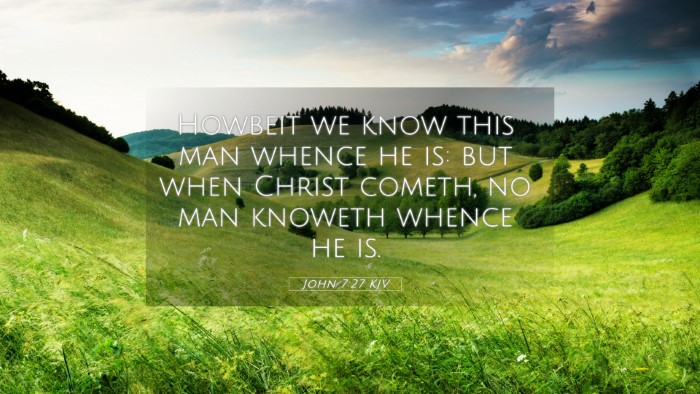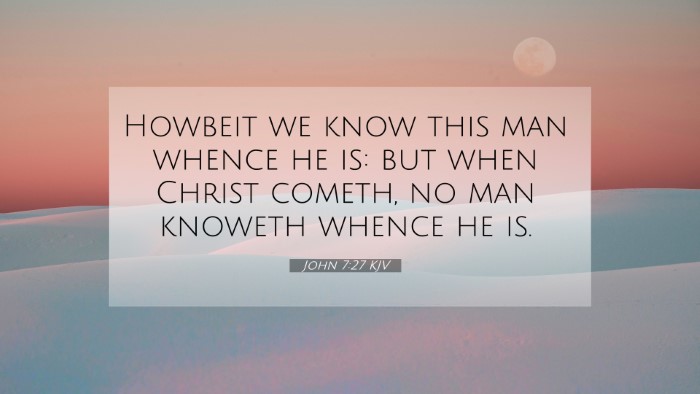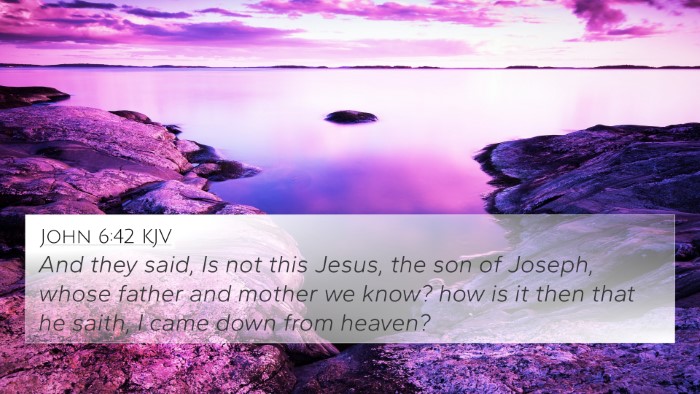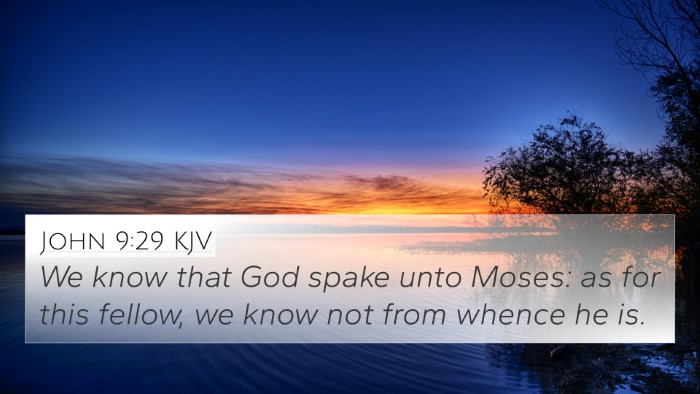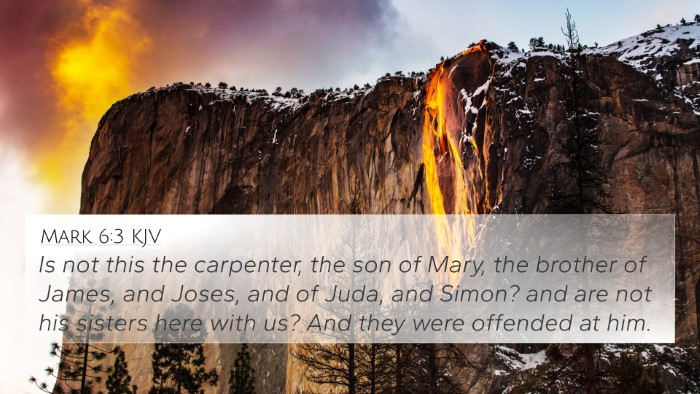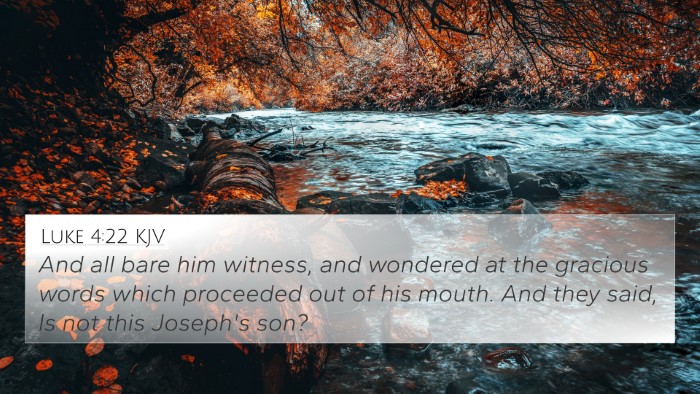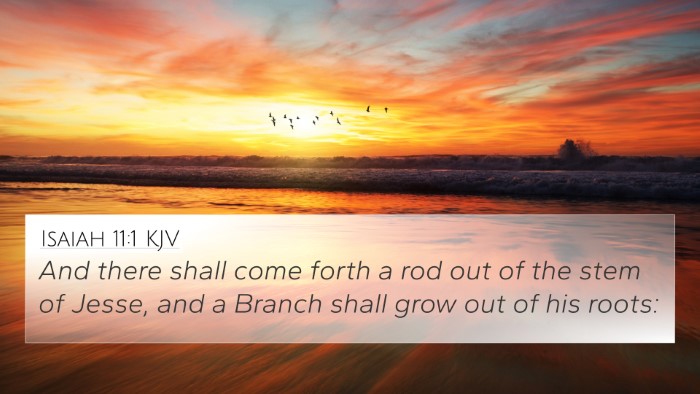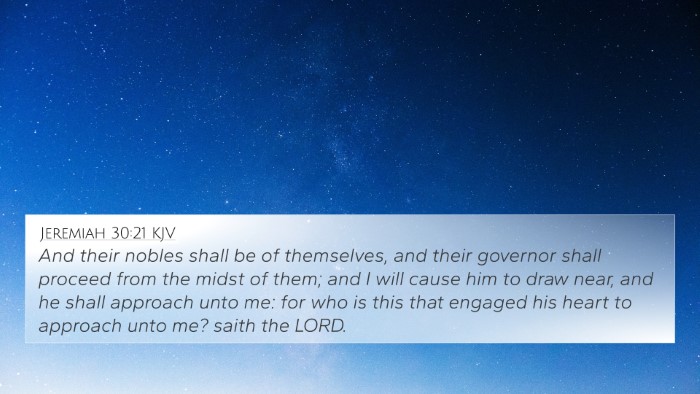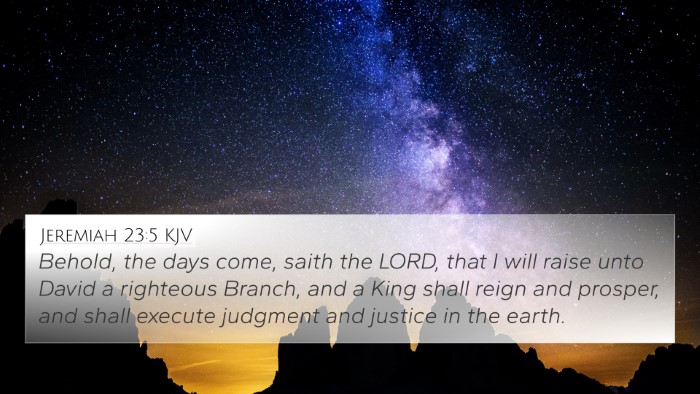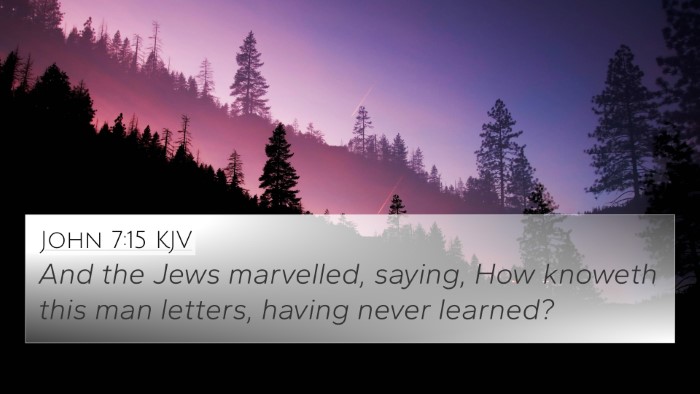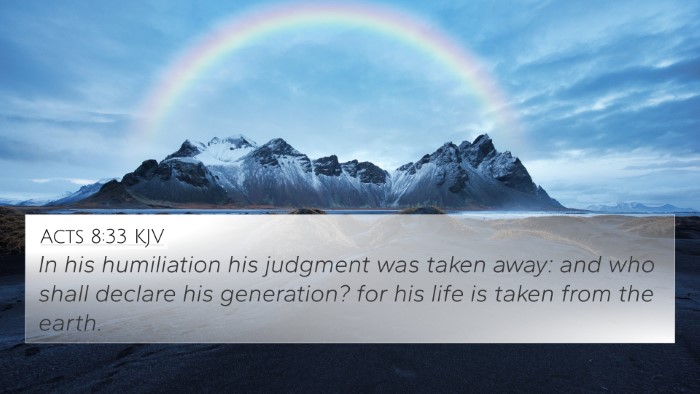Understanding John 7:27
The verse John 7:27 states, "But we know this man, whence he is: but when Christ cometh, no man knoweth whence he is." This verse reflects the confusion and skepticism surrounding the identity of Jesus among the people. It highlights the common belief that the true Messiah's origins would be hidden, contrasting with Jesus, whose background they thought they knew.
Overview of Commentary Insights
Several public domain commentaries provide valuable insights into this verse, including interpretations from Matthew Henry, Albert Barnes, and Adam Clarke. These interpretations focus on the reactions of the people around Jesus, their understanding of messianic prophecy, and the broader context of His ministry.
Matthew Henry's Comment on John 7:27
Matthew Henry emphasizes the people's limited understanding of Jesus' true nature and mission. He remarks that while they believed they knew Jesus' origins as a Galilean, they were unaware that He was born in Bethlehem, fulfilling prophecy. Henry points out the ironic situation where the masses were blind to the evidence before them concerning Jesus' divine origins.
Albert Barnes' Perspective
Albert Barnes underlines the significance of the people's assertion that they know where Jesus comes from. He notes that this is part of a larger theme of misunderstanding that permeates the Gospel of John, indicating the need for spiritual enlightenment to truly recognize Jesus’ identity as the Messiah. Barnes also connects this to the prophetic expectations of the time, elaborating on how the Messiah was thought to emerge from obscurity, hence the people's doubts about Jesus.
Adam Clarke's Analysis
Adam Clarke provides a historical context, discussing how the Jews held specific expectations regarding the coming of the Messiah. He argues that their assertion about Jesus’ origins reflects a deeper lack of awareness regarding scriptural prophecies. Clarke accentuates that the mention of unknown origins implies a figurative interpretation of messiahship, wherein the spiritual truth is often obscured by earthly perceptions.
Key Themes Derived from the Verse
- Misunderstanding of Identity: The crowd claims to know Jesus’ earthly origin, missing His divine nature.
- Fulfillment of Prophecy: The knowledge of Jesus’ birth in Bethlehem conflicts with their assumptions.
- Spiritual Blindness: A broader theme in John's Gospel concerning the difficulty many had in recognizing Jesus as the Messiah.
- Contrast of Expectations: The verse illustrates the tension between popular beliefs and scriptural truths about the Messiah.
- Importance of Divine Revelation: Personal knowledge may not equate to spiritual understanding.
Bible Cross-References Related to John 7:27
This verse connects with several other scriptures that elucidate its themes and messages:
- Matthew 2:1-6 - Prophecy of Christ's birth in Bethlehem.
- Isaiah 53:2 - Description of the Messiah's humble appearance and obscurity.
- Jeremiah 23:5 - Prophecy about a righteous branch emerging from David.
- John 1:46 - Nathaniel's skepticism about Jesus of Nazareth.
- Isaiah 9:1-2 - The prophecy regarding the great light coming from Galilee.
- John 7:41-42 - Continued discussion of Jesus’ origins and the prophetic expectations.
- Micah 5:2 - Explicit mention of Bethlehem as the birthplace of the ruler of Israel.
- Luke 2:4-7 - The account of Jesus' birth in Bethlehem.
- John 6:42 - The people’s assumption of knowing Jesus’ parentage and birthplace.
- John 8:14 - Jesus asserts His divine origins, revealing their misunderstanding.
Reflections on the Verse
The implications of John 7:27 extend beyond historical misunderstandings; they invite a contemporary audience to reflect on their perceptions of Christ. In what ways do we limit Jesus based on our preconceptions? The theme of spiritual blindness is vital as it reminds believers to seek deeper insight and understanding through the scriptures and the Holy Spirit.
Tools for Further Study
To enhance your understanding of cross-references and thematic connections in the Bible, consider utilizing the following tools:
- Bible concordance for locating specific verses.
- Bible cross-reference guide for navigating related texts.
- Digital Bible studies to explore interconnected themes.
- Commentary literature for in-depth analyses of various passages.
- Online theological resources for comprehensive doctrines and interpretations.
Conclusion
John 7:27 serves as a reminder of the complexity of Jesus’ identity and the necessity for deeper understanding in our spiritual journeys. Through the examination of this verse and its connections, believers can engage in a meaningful dialogue that encourages reflection and insight.

